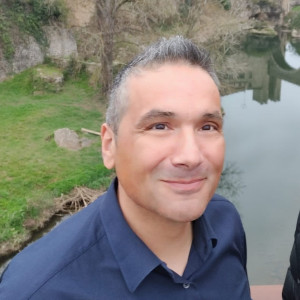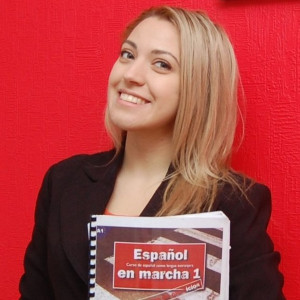
Ejercicios del presente simple y pasado simple III
Convierte las siguientes oraciones a negativas manteniendo el tiempo verbal.
1 Alexander Fleming invented penicilin.
Alexander Fleming did not (didn't) invent penicilin.
2 I saw her at the university yesterday.
I did not (didn't) see her at the university yesterday.
3 My sister watches television every afternoon.
My sister does not (doesn't) watch television every afternoon.
4 I met my best friends at school.
I did not (didn't) meet my best friends at school.
5 We are making dinner now.
We are not (aren't) making dinner now.
6 He's good at football.
He's not (is not/isn't) good at football.
7 There are beautiful monuments here.
There are not (aren't) beautiful monuments here.
8 We started to write stories at university.
We did not (didn't) start to write stories at university.
9 He reads his emails every day.
He does not (doesn't) read his emails every day.
10 Mike flew to Japan on his holiday.
Mike did not (didn't) fly to Japan on his holiday.













para mi algunos de los ejercicios esta mal creo que necesita un mejor servicio
Hola Mateo!
Los ejercicios sobre los verbos irregulares de este artículo están todos correctos, pero te invito a prácticar también la teoría en nuestro link https://www.superprof.es/apuntes/idiomas/ingles/verb-tense/irregular-verbs/. Si tienes dudas con algún ejercicio en particular de este artículo me lo podrías indicar para aclarar confusiones!
Saludos.
Here’s a summary of these irregular verbs in English:
1. **go** – went – gone
2. **arise** – arose – arisen
3. **sell** – sold – sold
4. **do** – did – done
5. **break** – broke – broken
6. **fly** – flew – flown
7. **steal** – stole – stolen
8. **drink** – drank – drunk
9. **be** – was/were – been
10. **forget** – forgot – forgotten
These verbs have different forms for the simple past and the past participle.
Verbs are words that indicate actions, states, or processes. They are crucial in language and change form based on tense, mood, person, and number.
### Types of Verbs:
1. **Action Verbs:** Show actions. Example: run, read, write.
2. **State Verbs:** Describe states or conditions. Example: be, seem.
3. **Transitive Verbs:** Require a direct object. Example: buy (something).
4. **Intransitive Verbs:** Do not require a direct object. Example: arrive, leave.
5. **Reflexive Verbs:** The action reflects back on the subject. Example: wash (oneself).
6. **Auxiliary Verbs:** Help form compound tenses. Example: have, be.
### Conjugations:
Verbs are conjugated in different tenses and moods:
– **Simple Tenses:** Present, past, future.
– **Compound Tenses:** Formed with an auxiliary verb and a participle. Example: have eaten, had read.
– **Moods:** Indicative, subjunctive, imperative.
### Irregular Verbs:
Do not follow standard conjugation rules. Example: go (went), be (was).
### Regular Verbs:
Follow common conjugation patterns. Example: talk (talked), eat (ate).
In summary, verbs are essential for constructing sentences and expressing actions, states, or changes, adapting through conjugation to fit various contexts.
Perdona pero me parece que esto esta incorrecto ya que en laprimera pregunta me marca que la respuesta correcta es to go cuando he encontrado en google que despues de decide va ing pro quitando eso (que quiza me equivoco) me gusta mucho como lo has planteado y te agradezco tambien que uses parte de tu tiempo para hacer este tipo de ejercicios para ayudar a la gente que lo necesita. 🙂
Hola Pedro,
Muchas gracias por tu comentario! No encuentro en este artículo la pregunta a la que te refieres, aquí estamos trabajando los verbos en el pasado por lo que la primera respuesta sería «went». Quedo atenta si es otra página a la que te estas refiriendo, saludos!
Es un tema sencillo pero al cual debes de poner mucha tencion con los conectores y con el was y were
INFINITIVE
PAST SIMPLE
awake
awoke
be
was / were
become
became
begin
began
bend
bent
bet
bet
bite
bit
bleed
bled
blow
blew
break
broke